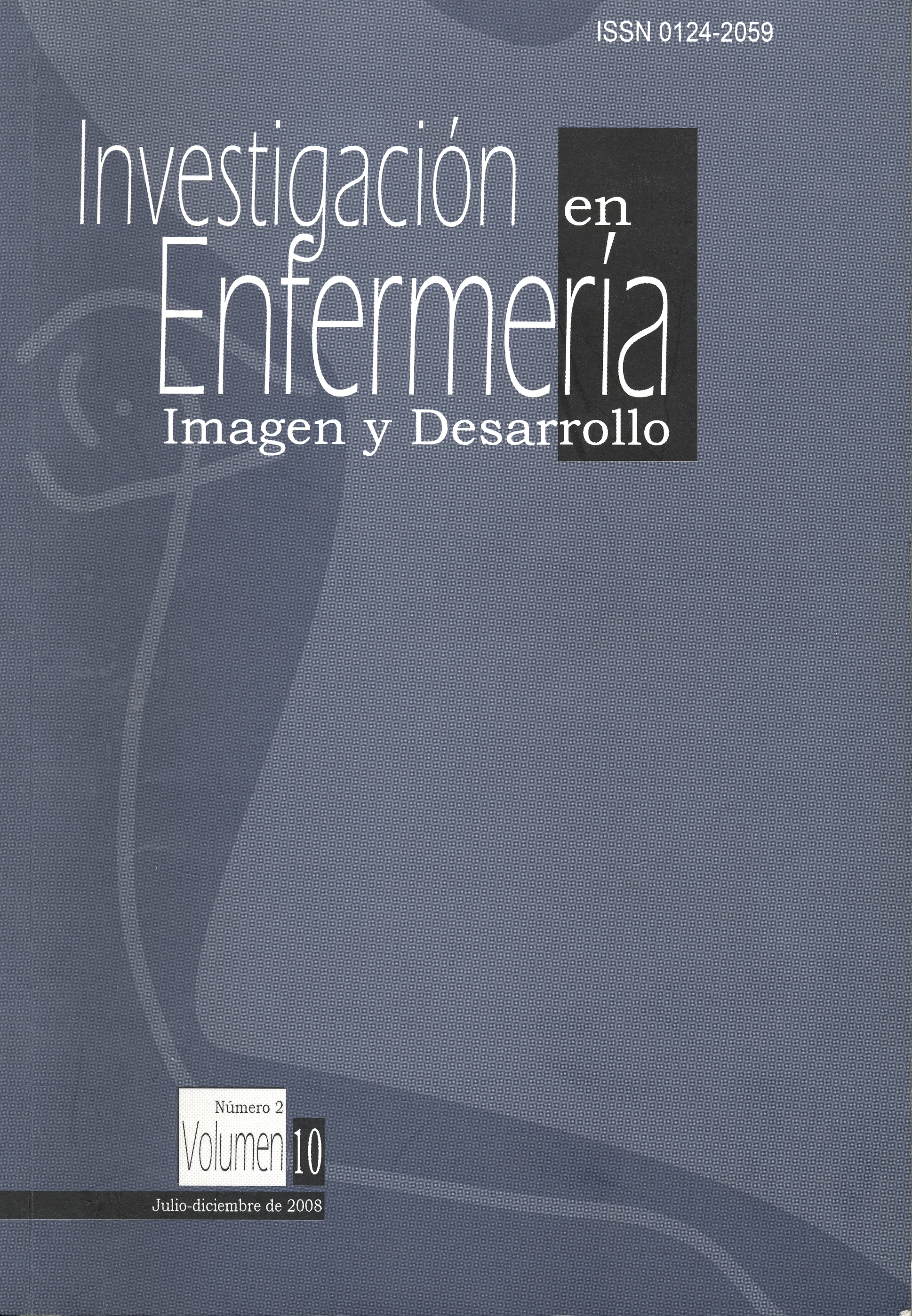Abstract
In Colombia, the rate of pregnancy in adolescents has been increasing in gradual form. In 1987 it corresponded to the 7.5% in 1997 to 14% and at the moment it occupies 20% of the total of the births. This situation has similar behavior in the local scope; it is a well as in the municipality of Apia, department of Ridaralda, for the alives born year the 2004 rate was of 54 adolescent pregnancies; in 2005, of 36 pregnancies; in 2006, of 43 pregnancies, and in August of 2007, of 26. By the previous thing, one becomes necessary to investigate what it happens with the use of contraceptive methods, since evident and is widely known that instruments and strategies exist to diminish their number and to increase the space between generations. Of this form, a qualitative study was made whose objective was as apposed to investigate the experiences of the adolescent the familiar planning. A structured inteview to 20 adolescents of 12 to 19 years of age was made, that voluntarily accepted to participate in this work, and that to the date was making use of some method of planing. The findings revealed that before entering the planning program the knowledge on sexuality and planning in both sorts he is ample and it comes in general from the educative institution and the social circle. One concludes that the decision to plan, is influenced by the fear to assume a paternity or precocious maternity that prevent the fulfillment of intentions or goals that the adolescent has considred for his future, in addition in spite of the planning campaigns is continued demosntrating an increase of pregnancies in adolescents. The search o strategies sets out on sexual and reproductive health, whose objetive goes to obtain an approach in the daily life of the adolexcent who allows to an adhesion and continuity him in the use of the planning methods.
The journal Investigación en Enfermería: Imagen y Desarrollo is registered under a Creative Commons Attribution 4.0 International Public License. Thus, this work may be reproduced, distributed, and publicly shared in digital format, as long as the names of the authors and Pontificia Universidad Javeriana are acknowledged. Others are allowed to quote, adapt, transform, auto-archive, republish, and create based on this material, for any purpose (even commercial ones), provided the authorship is duly acknowledged, a link to the original work is provided, and it is specified if changes have been made. Pontificia Universidad Javeriana does not hold the rights of published works and the authors are solely responsible for the contents of their works; they keep the moral, intellectual, privacy, and publicity rights.
Approving the intervention of the work (review, copy-editing, translation, layout) and the following outreach, are granted through an use license and not through an assignment of rights. This means the journal and Pontificia Universidad Javeriana cannot be held responsible for any ethical malpractice by the authors. As a consequence of the protection granted by the use license, the journal is not required to publish recantations or modify information already published, unless the errata stems from the editorial management process. Publishing contents in this journal does not generate royalties for contributors.


